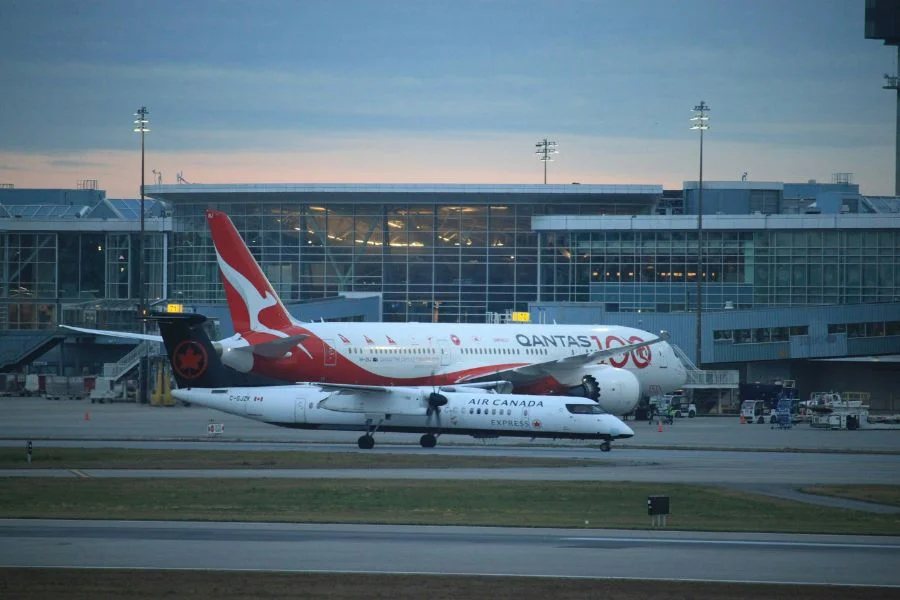Australia is one of the toughest countries in the world when it comes to airport customs and biosecurity rules. Travellers often assume they can carry snacks, cultural items, or natural products without issue, only to be stopped at the border and handed a fine of up to AUD 2,664. What seems harmless in your suitcase can pose a serious threat to Australia’s environment and agriculture. This article explores why the rules are so strict, the everyday items most likely to cause trouble, and what you can do to stay on the safe side.
Key Takeaways
Why Australia Enforces Strict Airport Rules
Australia is famous for its stunning natural landscapes and unique biodiversity. From the Great Barrier Reef to eucalyptus forests and native wildlife, the country has ecosystems that are found nowhere else. This uniqueness, however, comes with vulnerability. A single invasive pest or plant disease can wreak havoc on agriculture and the environment, costing billions of dollars and threatening food security.
Also Read: Australia Invests in Aged Care: Scholarships Worth Up to AUD 30,000
To prevent this, Australia enforces some of the strictest biosecurity laws in the world. Customs officers carefully inspect incoming baggage, cargo, and even mail. Something as small as a handful of seeds or a piece of fruit can carry pests or diseases that don’t exist in Australia. That’s why items that may seem normal to travellers are treated as potential risks.
The rules may feel strict, but they are a line of defense to protect both the economy and the environment. This is why Australia expects complete honesty when travellers declare what they are bringing into the country.
Food and Snacks: The Hidden Traps in Your Luggage
Nothing feels more comforting on a long journey than carrying a few snacks from home, but food items are one of the biggest causes of fines at Australian airports. Fresh fruits and vegetables are an obvious risk, but even packaged foods can get you into trouble if they are undeclared.
Rice, nuts, and seeds are particularly risky because they can carry pests like beetles or weevils. Sweets and snacks prepared at home or purchased abroad may also be flagged, especially if they contain dairy, nuts, or herbal ingredients. Even plane food taken off your flight can land you in hot water. More than one traveller has faced a fine for carrying a leftover sandwich or fruit provided by the airline.

The golden rule is simple: declare all food items, no matter how small. What you think of as just a harmless snack could be seen as a biosecurity risk by border officials.
Plants, Flowers, and Herbal Products That Raise Red Flags
For many travellers, carrying dried flowers, garlands, or herbal teas is part of a cultural tradition or simply a gift for loved ones. Unfortunately, these items are red flags for Australian customs. A garland made of marigolds or jasmine may look beautiful, but plant matter can hide seeds, fungi, or pests.
Herbal teas and spices can also be problematic if they include seeds, roots, or dried plant parts that could germinate or spread pests. Even incense sticks, if made from raw plant materials, may be inspected or confiscated.
Australia takes no chances with any product that originates from plants. If you are bringing such items, you should expect them to be inspected, and in some cases, destroyed, even if you declared them honestly.
Animal Products and Traditional Medicines Under Scrutiny
Animal-based products pose an equal, if not greater, concern. Items like honey, dairy, and pet food may contain bacteria, viruses, or parasites. Feathers, bones, and skins might seem decorative, but they can harbour diseases that threaten native animals.
Traditional medicines are particularly tricky. Many herbal or cultural remedies include animal or plant extracts, sometimes without clear labeling. Customs officers are trained to identify these risks, and carrying them undeclared is almost guaranteed to lead to penalties.
Also Read: Faster Student and Visitor Visa Approvals: Is Australia Back on Track?
Even souvenirs that include animal products, such as carved bone jewelry or leather goods, can trigger an inspection. If they are not declared, they can quickly become very expensive souvenirs once fines are added on.
Real Cases That Show How Easy It Is to Get Fined
The seriousness of enforcement is best understood through real cases. In one recent incident, a traveller was fined heavily for bringing a fresh flower garland into Australia. In another case, a visitor faced penalties for undeclared honey jars that were meant as gifts.
One particularly surprising case involved airline food. A passenger who carried a leftover apple from their in-flight meal was fined because the fruit had not been declared. These stories show that the rules are not theoretical; they are actively enforced, often with little room for excuses.
For many travellers, the shock comes from realizing that something as ordinary as a snack or souvenir can trigger such harsh consequences. But in Australia, biosecurity is not just about rules; it is about national protection.
How to Stay Safe: The Golden Rule of Declaring Everything
So, how do you avoid being caught in a costly mistake? The answer is simpler than you might think: declare everything. When you land in Australia, you will be given a passenger card where you must tick “yes” to carrying items such as food, plant material, or animal products. This does not mean your items will be confiscated automatically; it simply means they will be checked.

Declaring honestly is always safer than trying to hide items. If you declare an item that is not allowed, it will usually just be taken away without a fine. If you fail to declare, however, you risk fines of up to AUD 2,664 on the spot and, in some cases, visa cancellation.
It is also wise to check the official biosecurity guidelines before you pack. The list of prohibited or restricted items is regularly updated, and knowing the rules can save you money, stress, and embarrassment at the airport.
The Bottom Line for Travellers
Australia’s strict biosecurity system may feel daunting, but it exists for good reason. Everyday items that seem harmless in your luggage could pose a real danger to the country’s environment, agriculture, and economy.
The fines are not just about punishment; they are a deterrent to ensure that everyone entering the country takes responsibility. By declaring all items, no matter how minor, you protect yourself from unnecessary costs and help preserve Australia’s natural treasures.
Next time you fly to Australia, remember this simple truth: when in doubt, declare. It is far cheaper and safer than risking fines, delays, or even losing your right to enter the country.





